| |  | | | How the U.S. Can Help Iranians Seize Their Freedom By Winfield Myers ● Jun 18, 2025 Smart Brevity® count: 7 mins...1800 words Our special coverage of the Israel-Iran war continues with articles by Hussein Aboubakr Mansour—who argues that America must join Israel against Iran—plus Jim Hanson, Michael Rubin, Faezeh Alavi, and others. With the Islamic regime weakened militarily and politically, they look at what may happen next, and what it could mean for Iran, Israel, the region, and beyond. Please join the Middle East Forum's Iran War Monitor broadcast for June 19, 2025 at 4PM EDT. You can register by clicking here. | | Help Us Pass the Iranian Terror Prevention Act of 2025 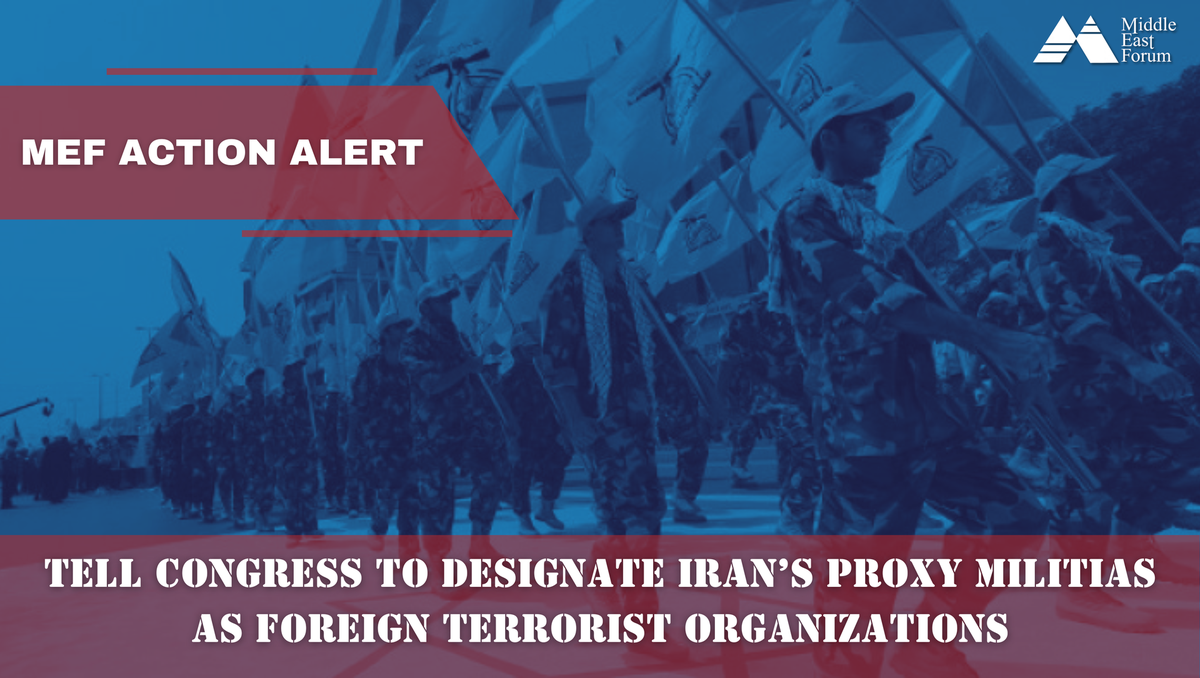 Because of a technical glitch beyond our control, if you submitted letters via yesterday's Dispatch or Action Alert email, please visit the campaign page and sign up again to complete the submission process. We apologize for the inconvenience and thank you for your dedication. Iran-backed militias in Iraq have promised to send hundreds of suicide bombers at American forces in the Middle East following Israel's attack on the Iranian regime. It's time to designate these Iranian proxies as Foreign Terrorist Organizations. Take Action Now! With one click, you can send emails to your Congress members urging them to pass the Iranian Terror Prevention Act of 2025. Your letters will ensure that armed Shia militias operating on behalf of Tehran are held accountable for attacks on U.S. troops and our allies. Introduced by Rep. Gregory Steube (R-FL), H.R. 2581 - the Iranian Terror Prevention Act requires the secretary of State to designate at least 29 Iranian-backed militias, including the Badr Organization and Kataib Hezbollah, as Foreign Terrorist Organizations under the Immigration and Nationality Act. It also requires the president to consider sanctions under Executive Order 13224 to block their assets and prohibit transactions, strengthening measures against these threats. The bill requires regular reports to Congress on new designations and sanctions. This legislation is critical to protect American troops and support our ally Israel by countering Iran's destabilizing influence through its proxies. These groups fuel violence and terrorism across the region and are responsible for injuring and killing U.S. service members. They have escalated threats and launched attacks on American forces since Israel launched Operation Rising Lion to eliminate Iranian nuclear facilities. Your voice matters—act swiftly to protect American lives and support our ally! To take action, click here. | | Why America Must Join Israel Against Iran 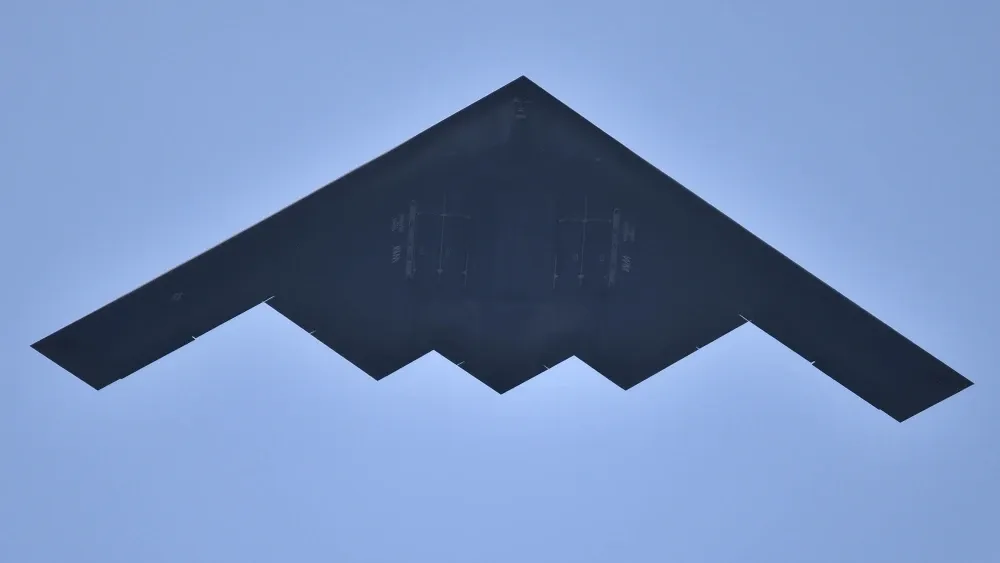 By: Hussein Aboubakr Mansour Israel is demonstrating remarkable strategic precision and military effectiveness in its ongoing operations against Iran, now entering their fifth day. Why it matters: The operations signify a potentially transformative shift in regional and global strategic dynamics. -
Israel quickly established complete air superiority, targeting Iran's nuclear infrastructure, including Natanz and Fordow. -
The U.S. is providing critical support, intercepting most of Iran's estimated 370 ballistic missiles. What's next: The United States should join Israeli operations to ensure the swift destruction of Iran's nuclear program. -
President Trump's decisive statements underscore the urgency of American involvement. -
It is firmly in America's interest to ensure that our most important ally emerges swiftly, decisively, and with unquestionable superiority, having absorbed the minimal possible cost. The stakes: Allowing Iran to acquire nuclear weapons would result in catastrophic regional consequences. Our thought bubble: Decisive U.S. action alongside Israel would reinforce alliances and signal global resolve, particularly to rivals like China. Now is the moment to restore American strength and leadership. To read the full article, click here. | | WATCH: Israel-Iran War Monitor | June 18, 2025 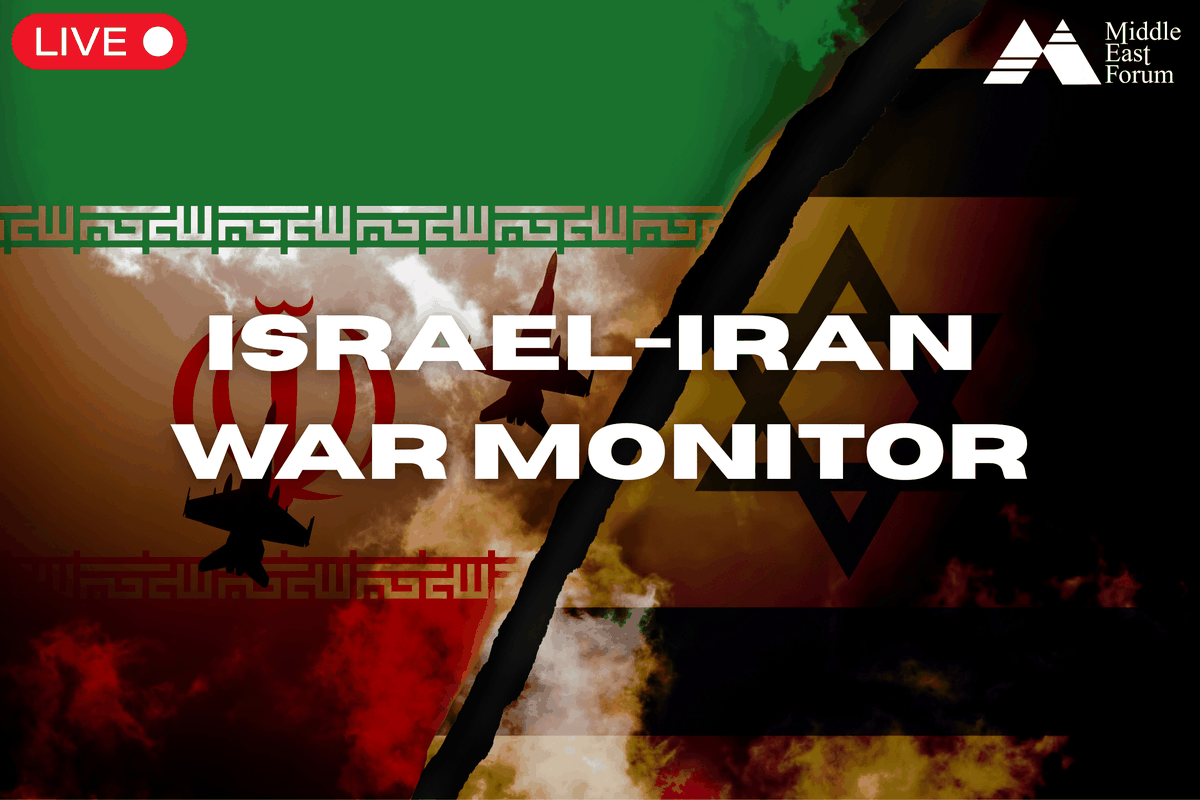 The escalating conflict between Israel and Iran has reshaped Middle Eastern geopolitics, with Israel's precision airstrikes, cyber warfare, and ground operations targeting Iran's military leadership and nuclear program, exposing Iran's vulnerabilities. Despite Iran's retaliatory strikes and internal restrictions, Israel's robust defenses have held strong. The U.S. weighs military intervention against diplomatic solutions, while international reactions vary, with some nations supporting Israel and others, like France and Turkey, criticizing it. Iran's internal struggles weaken its regional influence, and shifts in Syria and Europe signal a broader realignment, as campaigns against Iranian militias gain traction. On today's panel: -
Gregg Roman
MEF executive director -
Jim Hanson
MEF chief editor -
Winfield Myers
MEF managing editor, Campus Watch director -
Eric Navarro
MEF Red Sea Security Initiative director -
Alex Selsky
MEF-Israel director -
Dexter Van Zile
Focus on Western Islamism managing editor To watch the full broadcast, click here. | | The People of Iran Should Seize Their Freedom 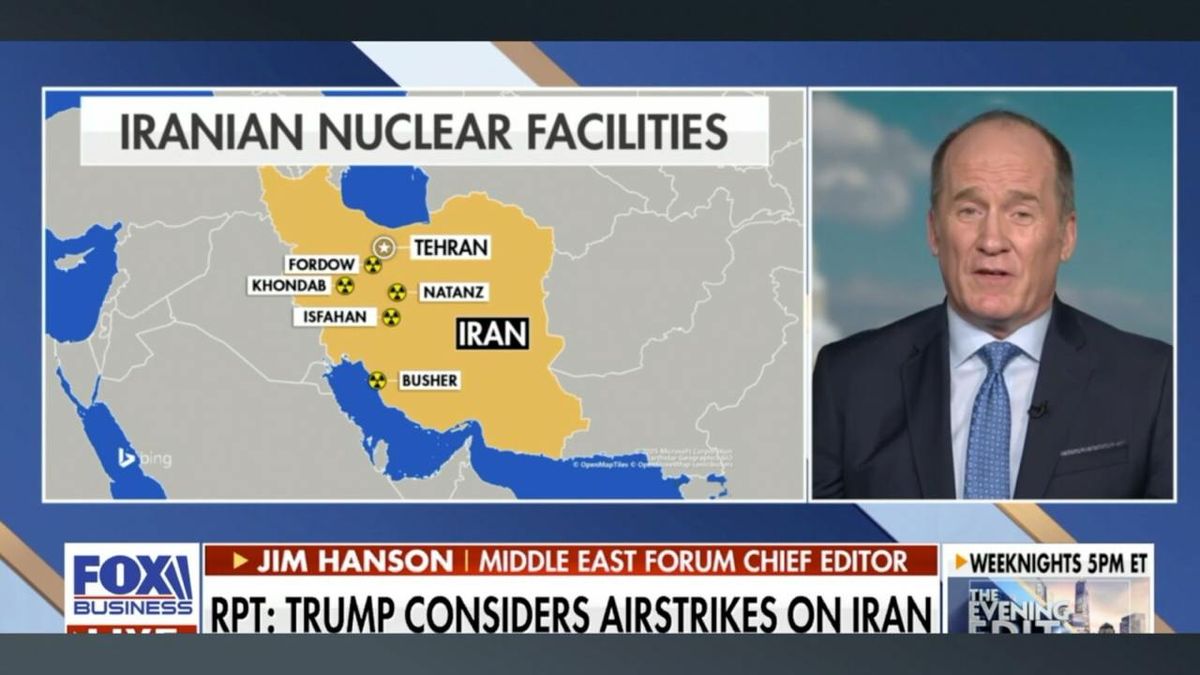 By: Jim Hanson In a Fox News interview, Jim Hanson discussed the impact of recent Israeli strikes on Iran, highlighting the weakening of the regime's military and leadership. Why it matters: The strikes have created a unique opportunity for domestic opposition to challenge Iran's regime. -
Hanson emphasized the weakened support for the regime, suggesting it's an optimal time for Iranians to rise. -
Hanson believes regime change could begin in the provinces, with local police joining the people. The stakes: Iran's regime faces accusations of severe human rights abuses, including torture and public executions. Our thought bubble: President Trump's call for unconditional surrender could signal the end of the Islamic Republic if internal opposition gains momentum. To watch the video and read the transcript, click here. | | Support MEF's Iran Freedom Initiative 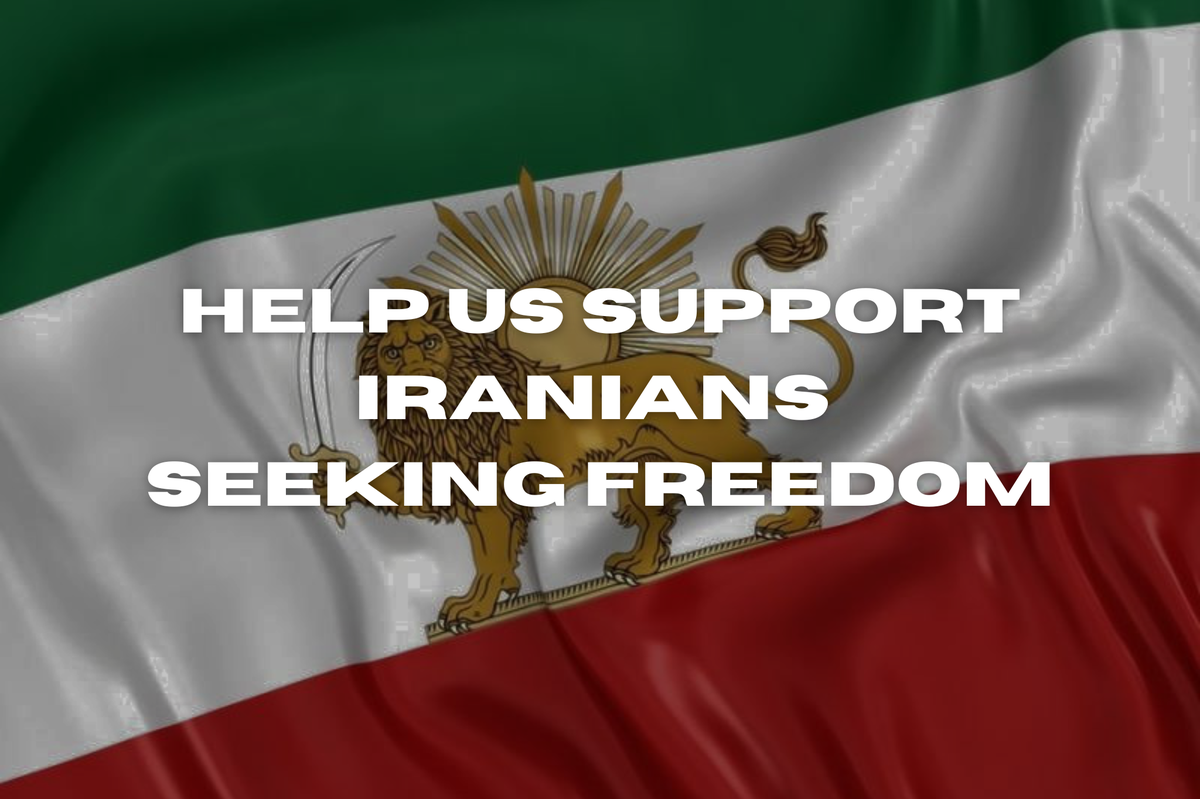 The Islamist regime in Iran has gone dark—and its collapse is accelerating. Six days ago, Israel launched "Operation Rising Lion" against Iran's nuclear facilities and Revolutionary Guard leadership. Today, the Islamic Republic imposed a near-total internet blackout across the entire nation. They cannot hide what is happening: the systematic dismantling of every pillar of their power. The Middle East Forum's moment has arrived—and we are seizing it with both hands. Despite this, the Middle East Forum's Iran Freedom Initiative continues to operate in full compliance with United States law through secure channels, providing strategic support to resistance groups and delivering real-time intelligence and analysis to global audiences. Over the past week, our teams have: -
Maintained contact with networks inside Iran despite the blackout -
Documented key military and nuclear site strikes confirmed by international sources -
Tracked the collapse of Iran's financial infrastructure through unprecedented cyberattacks -
Delivered expert analysis and media outreach to inform policymakers and the public We have prepared for this moment through years of careful planning and relationship building. Our Iran Freedom Initiative represents the only comprehensive operational plan to channel this military pressure into lasting political transformation. While others debate policy papers, our teams operate on the ground, providing the tools and support that transform uprising into revolution. The regime's loss of control, both militarily and digitally, opens a narrow window for lasting change. With continued effort, and by working together, we can help Iranians take the next step toward freedom and democratic governance. To support the Iran Freedom Initiative, click here.
To visit the Iran War Monitor website, click here. | | The Iran War Live Blog is a collection of the most up-to-date information by MEF's experts. It includes reports from inside the country, excerpts from our most recent pieces on the topic and insider information from Israel and Washington DC. Updated frequently, it's the latest addition to MEF's resources on the Israel-Iran conflict. To read the blog, click here. | | Iran's Nuclear Program Has Been Hit Hard, but Won't Be Knocked Out If Fordo Remains 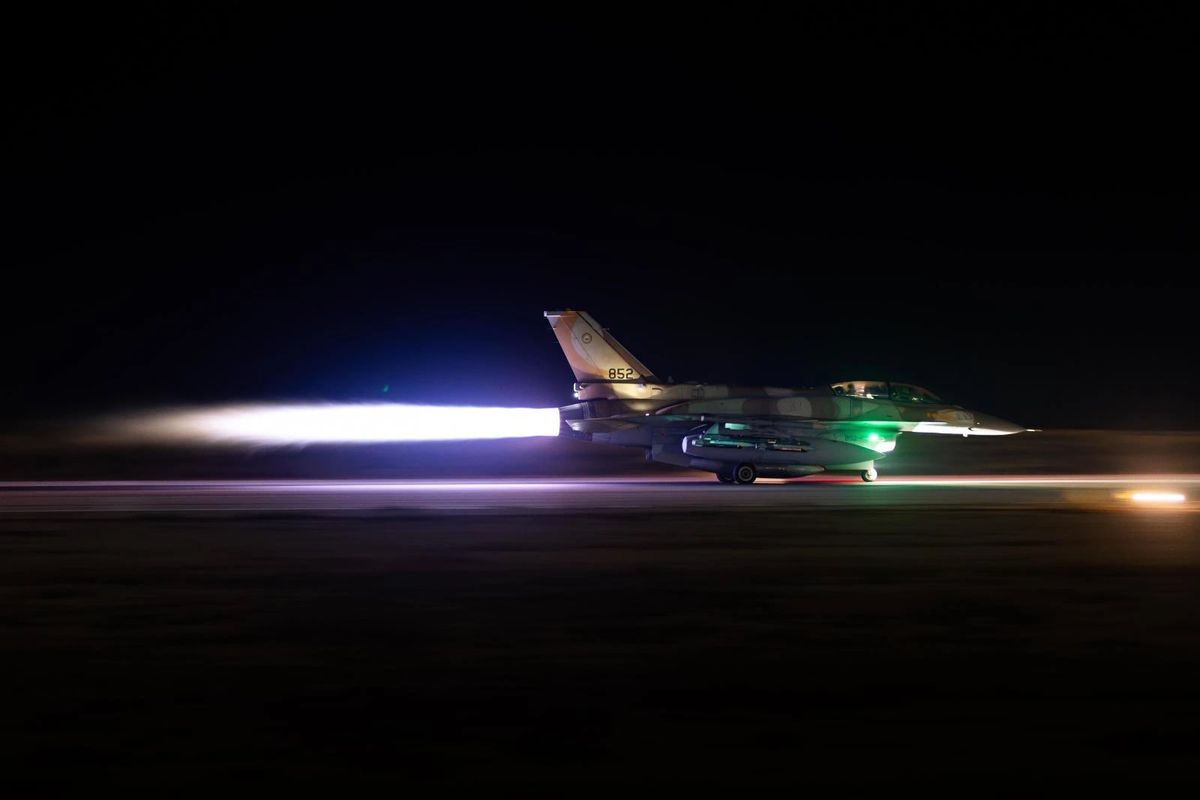 By: Lazar Berman Prime Minister Benjamin Netanyahu has spotlighted Israel's significant achievements in Operation Rising Lion, but emphasized the challenges that remain. Why it matters: The Fordo nuclear facility remains a critical challenge, as Israel lacks the capability to destroy it from the air. -
The U.S. possesses the GBU-57 Massive Ordnance Penetrator, the only munition capable of penetrating Fordo's underground defenses. -
Israel's ambassador to the U.S. Yechiel Leiter said "If you leave infrastructure like Fordo in place, there's just really no point." The stakes: U.S. involvement is crucial for neutralizing Fordo and ensuring the operation's success. -
A successful strike would significantly set back Iran's nuclear capabilities and alter regional power dynamics. -
Without U.S. support, Israel may need to consider alternative strategies, including potential commando maneuvers similar to the special forces operation that destroyed Syria's underground missile production facility at Masyaf in September 2024.. Our thought bubble: The decision now rests with President Trump, whose support could be pivotal in securing the operation's objectives. To read the full article at the Times of Israel, click here. | | Why Is the War Between Iran and Israel Not the Iran-Iraq War 2.0? 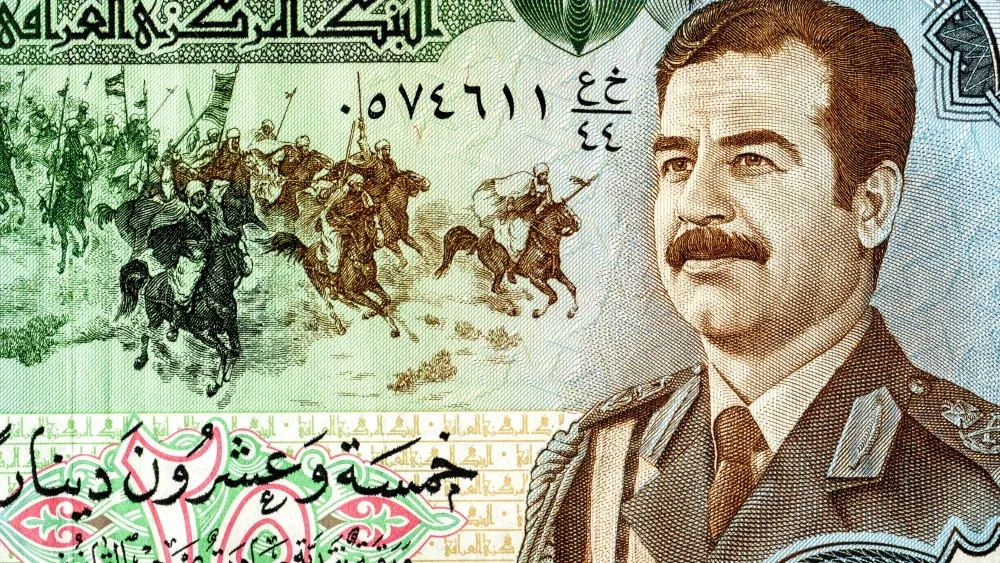 Faezeh Alavi On June 13, 2025, Israel attacked numerous targets in Iran, including military and nuclear sites, eliminating top officials like Hossein Salami and Mohammad Bagheri. Why it matters: Unlike during the Iran-Iraq war that Iraq started in 1980, many Iranians now see Israel as an ally rather than an adversary. -
Israeli Prime Minister Netanyahu expressed support for the Iranian people, resonating with those who oppose the regime. -
Analysts fear a rally around the regime, but the current situation reflects a different sentiment compared to past conflicts. The stakes: Iranians have shown appreciation for Israel's stance and recent actions. -
The alliance has gained momentum with symbolic gestures, such as Crown Prince Reza Pahlavi's visit to Israel. -
Iranian dissidents have openly supported Israel's strikes, celebrating the removal of regime figures responsible for past atrocities against Iranians. Our thought bubble: The evolving relationship between Israel and Iran could redefine regional dynamics, especially as Iranians increasingly align against their government. The Iranian people have had enough. They will not rally around a regime so many despise. To read the full article, click here. | | The Incredible Disappearing Mujahidin al-Khalq 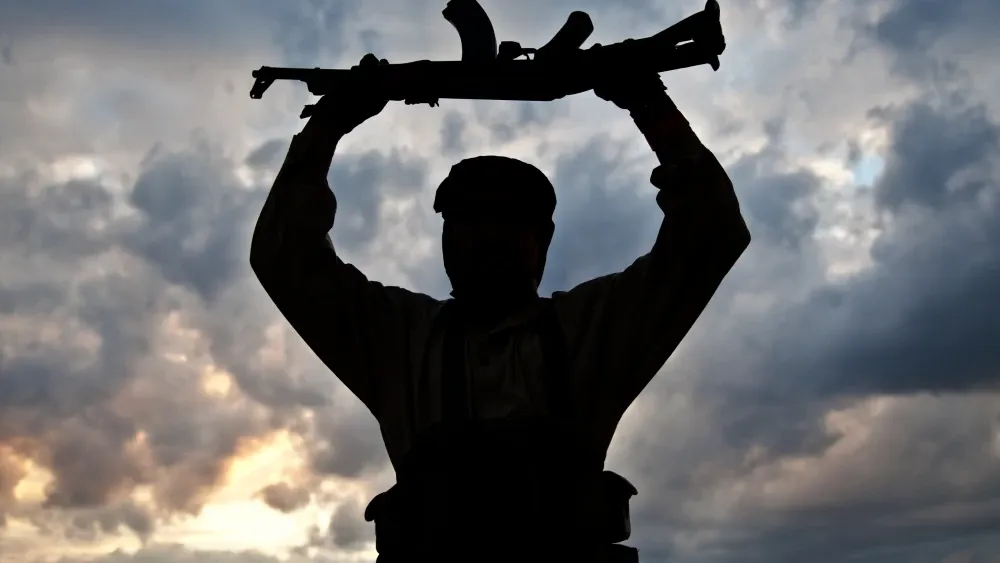 By: Michael Rubin The Mujahedin al-Khalq (MEK), often criticized for its cult-like operations and dubious alliances, faces irrelevance as Iran's regime teeters on collapse. Why it matters: The MEK's history of opportunistic alliances and misinformation has eroded its credibility, leaving it sidelined during Iran's most critical moment. -
Despite lavish spending on conferences and political endorsements, the MEK remains isolated from genuine Iranian opposition movements. -
The group's silence in Iran's current crisis underscores its disconnect from the Iranian people's quest for authentic change. The stakes: As the regime falters, the MEK's role diminishes, revealing its true nature as a tool of foreign interests rather than a legitimate opposition force. -
The MEK's past ties with Saddam Hussein and its cult-like indoctrination practices have alienated it from ordinary Iranians. -
With foreign intelligence agencies taking direct action, the MEK's claims of insider knowledge appear increasingly hollow. Our thought bubble: As Iranians demand democracy, the MEK's outdated Marxist-Islamist ideology is likely to fade, discredited and discarded by those it claims to represent. To read the full article, click here. | | We hope you're enjoying our special coverage of Israel's war with Iran. We'll continue to produce daily issues of the Dispatch while the war rages. If you found this useful to understanding the conflict, please forward it to a friend. And please use the comments section to let us know your opinion. Thank you, Winfield Myers
Managing Editor, Middle East Forum
Director, Campus Watch | | | | Was this edition useful?  

Your email will be recorded and shared with the sender |        MEF, an activist think tank, deals with the Middle East, Islamism, U.S. foreign policy, and related topics, urging bold measures to protect Americans and their allies. Pursuing its goals via intellectual and operational means, the Forum recurrently has policy ideas adopted by the U.S. government.
Copyright © 2024 Middle East Forum, All rights reserved.
Our mailing address is:
Middle East Forum
1650 Market Street, Suite 3600
Philadelphia, PA 19103 | | | | | Powered by 
| | This email was sent by Middle East Forum via Axios HQ | | | |
0 коммент.:
Отправить комментарий